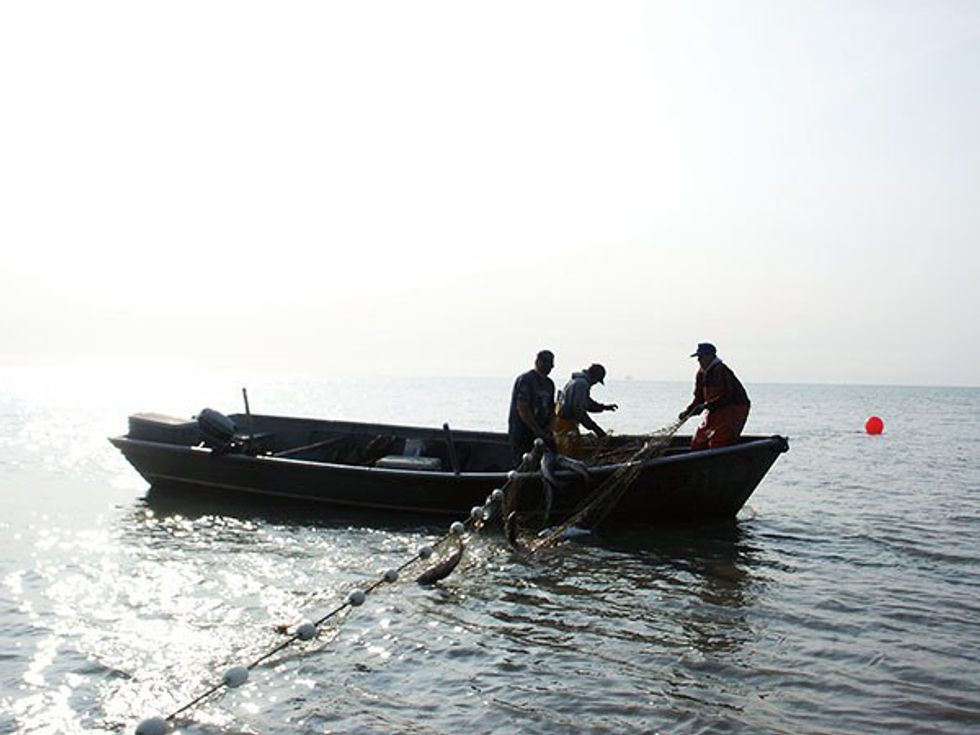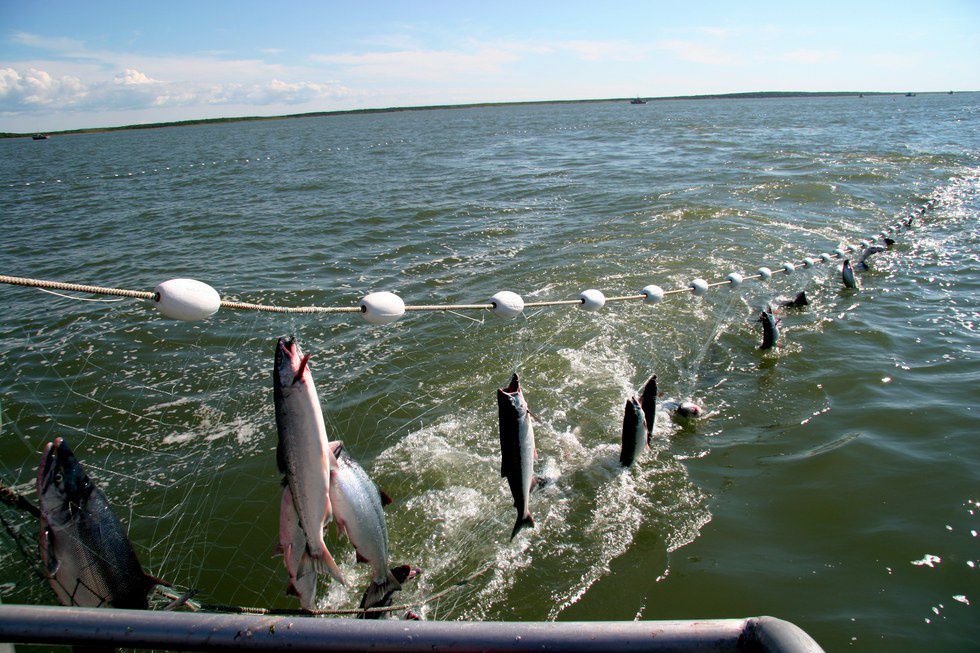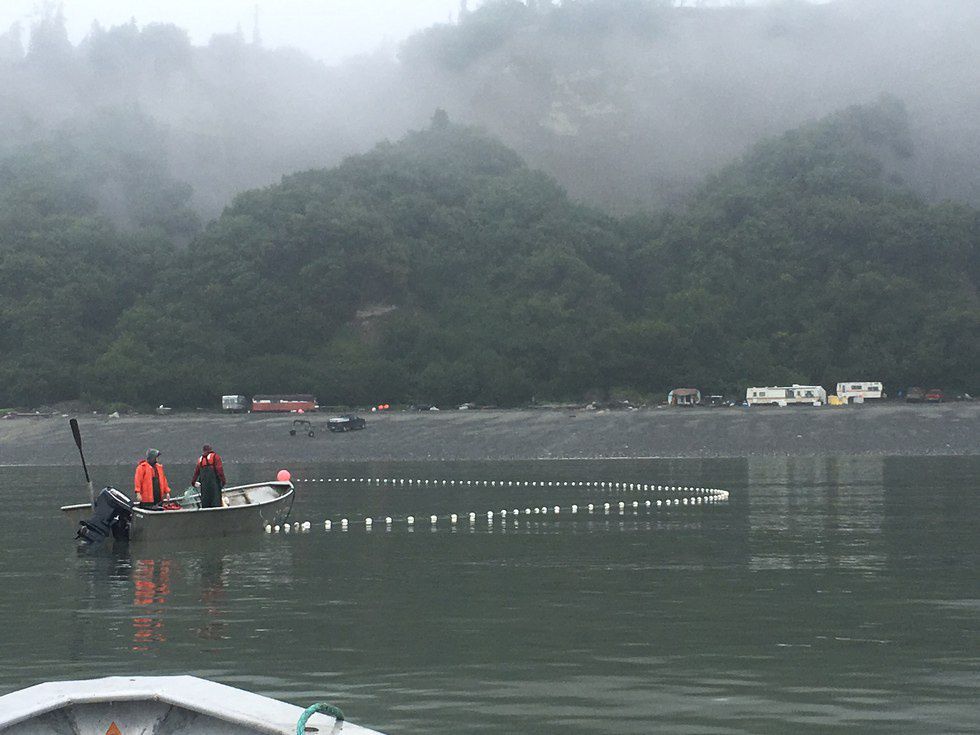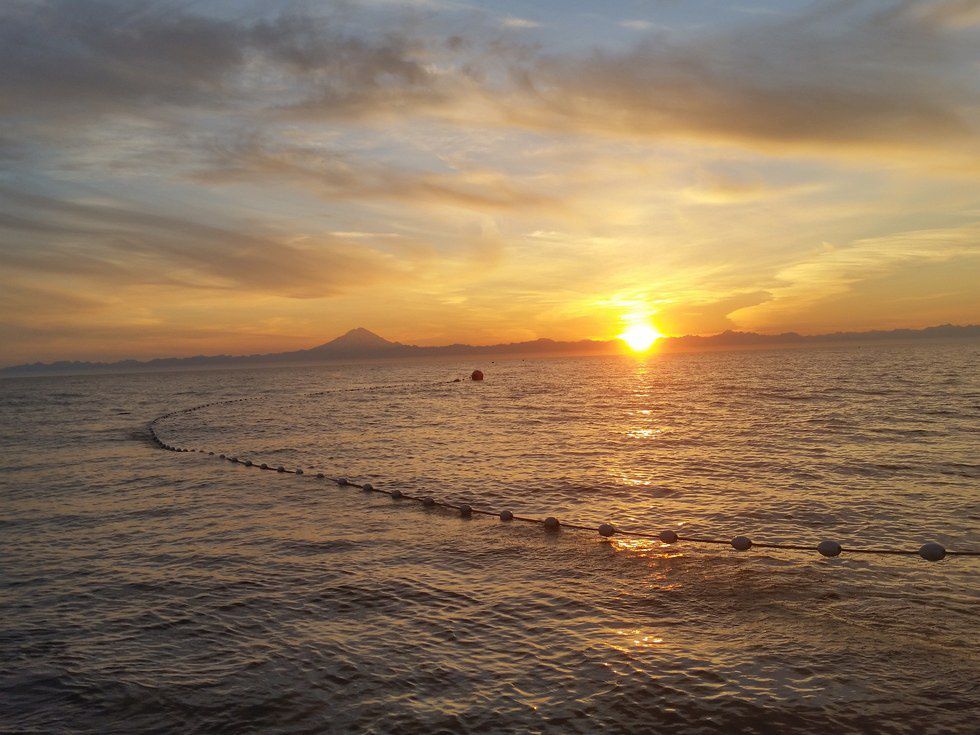Author note: The photos in this article are only to help explain set-netting and are not from the day described in the story.
July 16, 2011.
It started out like any other Thursday, with a wake up call at 5.45 a.m. The water was flat, calm, glass-like, with the morning sun shining across its surface. We got ready just like we did any other morning: ate breakfast, drank coffee – lots of coffee – put our gear on and launched our boats to be able to set our nets for the 7 a.m. opening. My family runs a two-boat, 12 net "set-net" site located in the Upper Cook Inlet out of Clam Gulch, Alaska. I worked in a boat with my oldest sister who was 21, my older brother who was 18 (I was only 15 at the time). We set our nets in the water up to a mile-and-a-half off shore and picked through them every six hours at the change of the tide. After setting our nets, we'd go through and pick all the fish out of them. On a normal day, this took only an hour-and-a-half, but as we quickly realized, this day was far from normal.
As we began to pick our nets for the low-water pick, I remember there being a lot of fish for only just having set our nets in the water. At first it was so exciting! With every pull across the net, 10 more salmon would fall into the boat. We tried to move as quickly as we could, but with as many fish as we were catching, each net was more difficult than the last. With our boat at maximum capacity, we needed to go to shore to off load our fish so we could safely go back out and continue helping the other boat pick the nets. We continued picking through the change of the tide – the tide that was previously going out, was now moving in, or "flooding." It is common at the turn of the tide that the winds start to pick up, potentially creating rough waters. This was never a concern for us, as the wind and waves would usually die down shortly, but we soon learned that they would only get worse. We continued to work throughout the day out on the water, only going to shore to offload fish and immediately return to picking the copious amounts of salmon.
At this point, it was six in the afternoon, high tide and our outer nets were completely full of fish. The wind had created extremely rough water and a small-water-craft advisory in our area. Instead of just picking through the nets, we started to "roundhaul," or pull our nets into the boat, with the salmon still in them. The boat I work in is only 17 feet long, with the sides standing at a mere three feet tall. We roundhauled half of a net taking on water with every wave that crashed into the boat. While we were focused on pulling our net, we didn't notice the thick clouds that had rolled in, blocking our view of shore. Our boat was heavily overloaded and taking on water. Things soon began to take a turn for the worse. With our other boat off-loading fish on shore and no one to hear or see our distress signals, we decided we needed to get to shore as fast as we could. We cut our net down the middle and left half of it still in the water. In my life of fishing, I had never seen a boat so full of both fish and water before.
After what seemed like an eternity later, we broke through the clouds and could see our camp site a half mile down the beach. Trucks driving down the beach stopped and watched us as we attempted to traverse to our site; holding on for dear life in fear of getting tossed overboard. 45 minutes. It was 45 agonizing minutes of tears, prayers and fear while driving the mile-and-a-half to the safety of shore. From start to finish we were in the water for over 15 hours straight without food or rest, tediously picking fish after fish. Even though we were finally on shore, the night had just begun. It took us all night and into the morning to get the fish out of the nets we brought to shore. We caught 20,000 pounds of Sockeye salmon at $2.10 a pound, in only a 12 hour period. Those who weren't a part of it wish for another big day like this, but for me – I can only pray we are prepared.




























